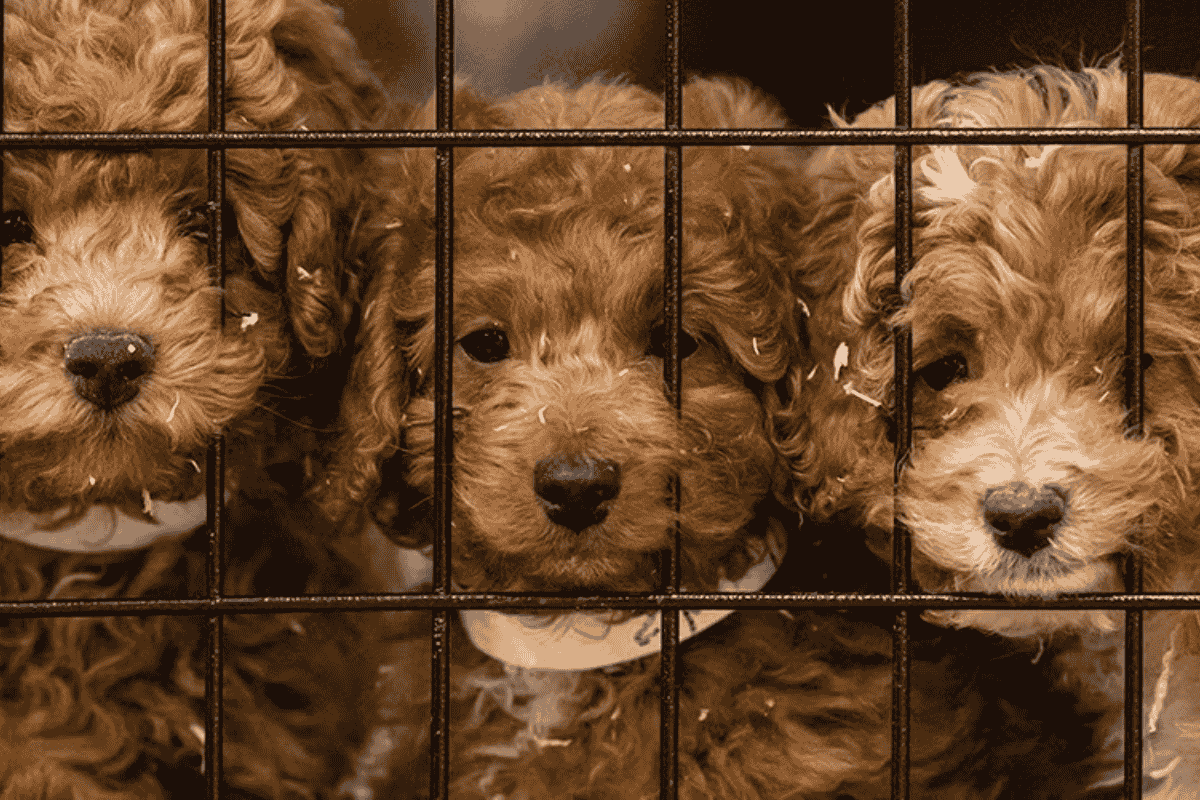Every year, millions of people unknowingly buy puppies that come from puppy mills. These facilities prioritize profit over animal welfare, subjecting dogs to inhumane conditions.
To avoid supporting this cruel industry, it’s important to understand where puppy mill dogs are commonly sold and how to recognize red flags.
Websites
Many puppy mills sell directly to the public through slick, professional-looking websites. These sites often feature adorable pictures and persuasive language about “family-raised” puppies. However, appearances can be deceiving.
- Shipping offers are a red flag. Reputable breeders rarely ship puppies sight unseen.
- False claims of legitimacy. Some websites openly deny being puppy mills, but without a visit to the facility, there’s no way to confirm.
- Consumer fraud risk. Anyone can create a website, making it easy for mills to hide in plain sight.
Pet Stores
Pet stores treat puppies as merchandise, stocking them much like other retail products.
- Low-cost production. Breeders sell puppies to brokers for as little as $75.
- Huge markups. Customers then pay over $1,000 for the same puppy in a store.
- Profit-driven pipeline. This chain incentivizes mass breeding with little regard for health or humane treatment.
Classified Ads
Classified listings in newspapers and online (like Craigslist) remain a common outlet for commercial breeders.
- Multiple breeds for sale. This is often a sign of a large-scale breeder rather than a small, ethical one.
- “Meet elsewhere” requests. If the seller avoids showing you where the dogs are raised, it’s a major warning sign.
The Adoption Option
Adopting from shelters or rescues is the most reliable way to avoid supporting puppy mills while giving an animal a second chance at life.
- Millions of animals need homes. You can find both mixed-breed and purebred dogs.
- Resources for adoption. Sites like petfinder.com and adoptapet.com connect adopters with shelters and rescues nationwide.
- Breed-specific rescues. If you’re looking for a particular breed, search for rescues that specialize in it.
Some breeders disguise themselves as rescues. If someone is “adopting out” multiple litters of purebreds with more on the way, they may not be legitimate.
The best way to avoid being a puppy mill’s next customer is to adopt. If you do choose to buy, always demand to see where the puppies and their parents are raised. Never rely solely on a website, store, or ad.












